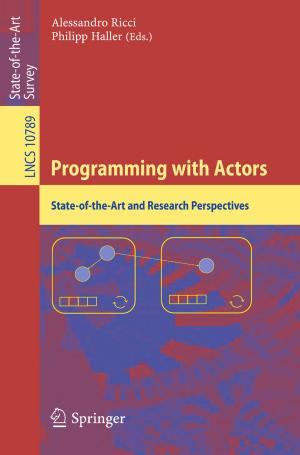Fair Reflection of Society in Judicial Systems - A Comparative Study
Nonfiction, Religion & Spirituality, Philosophy, Reference, Reference & Language, Law, International| Author: | ISBN: | 9783319184852 | |
| Publisher: | Springer International Publishing | Publication: | July 20, 2015 |
| Imprint: | Springer | Language: | English |
| Author: | |
| ISBN: | 9783319184852 |
| Publisher: | Springer International Publishing |
| Publication: | July 20, 2015 |
| Imprint: | Springer |
| Language: | English |
This book addresses one central question: if justice is to be done in the name of the community, how far do the decision-makers need to reflect the community, either in their profile or in the opinions they espouse? Each contributor provides an answer on the basis of a careful analysis of the rules, assumptions and practices relating to their own national judicial system and legal culture. Written by national experts, the essays illustrate a variety of institutional designs towards a better reflection of the community. The involvement of lay people is often most visible in judicial appointments at senior court level, with political representatives sometimes appointing judges. They consider the lay involvement in the judicial system more widely, from the role of juries to the role of specialist lay judges and lay assessors in lower courts and tribunals. This lay input into judicial appointments is explored in light of the principle of judicial independence. The contributors also critically discuss the extent to which judicial action is legitimised by any ‘democratic pedigree’ of the judges or their decisions. The book thus offers a range of perspectives, all shaped by distinctive constitutional and legal cultures, on the thorny relationship between the principle of judicial independence and the idea of democratic accountability of the judiciary.
This book addresses one central question: if justice is to be done in the name of the community, how far do the decision-makers need to reflect the community, either in their profile or in the opinions they espouse? Each contributor provides an answer on the basis of a careful analysis of the rules, assumptions and practices relating to their own national judicial system and legal culture. Written by national experts, the essays illustrate a variety of institutional designs towards a better reflection of the community. The involvement of lay people is often most visible in judicial appointments at senior court level, with political representatives sometimes appointing judges. They consider the lay involvement in the judicial system more widely, from the role of juries to the role of specialist lay judges and lay assessors in lower courts and tribunals. This lay input into judicial appointments is explored in light of the principle of judicial independence. The contributors also critically discuss the extent to which judicial action is legitimised by any ‘democratic pedigree’ of the judges or their decisions. The book thus offers a range of perspectives, all shaped by distinctive constitutional and legal cultures, on the thorny relationship between the principle of judicial independence and the idea of democratic accountability of the judiciary.















